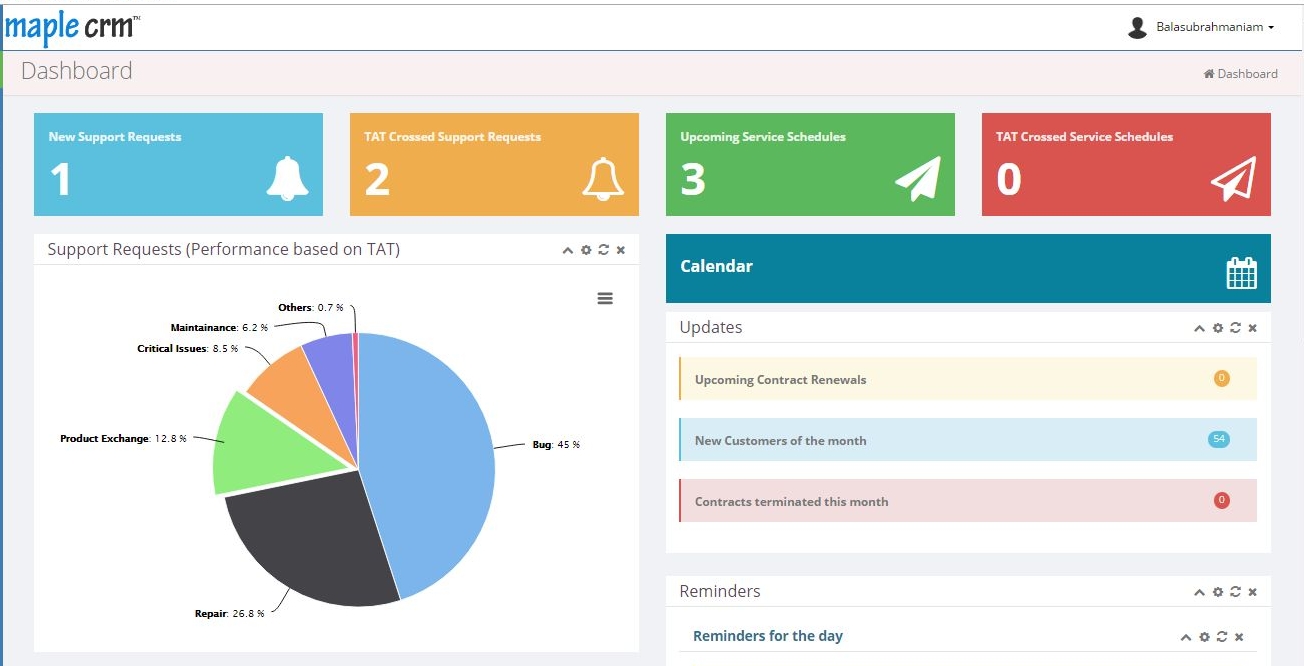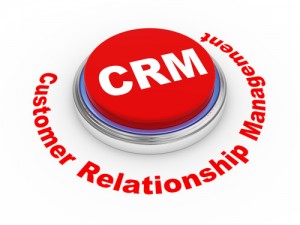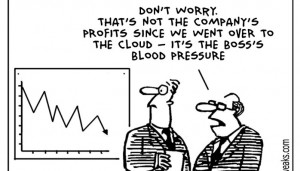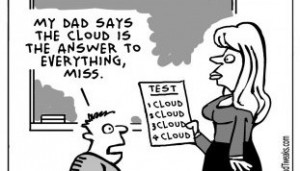Many issues prevent small businesses from adopting cloud-based customer relationship management (CRM) applications. Let’s take a look at a few of the reasons small businesses do not choose cloud based apps, and dispel these myths.
Security — Many small business owners erroneously believe that cloud-based CRM apps are somehow less secure than CRM housed on their in-house computers.The truth is, the cloud is just as secure, if not more so than your computer. They know they are a target, so they work hard to harden security. Unlike your business computer, which you’re probably not worried about most of the time, someone is working on cloud security 24/7.
Cost — Small business owners are always worried about cost, thankfully this is one myth that can easily be debunked because using a cloud based app for any function, especially CRM is less expensive than purchasing expensive software in-house. Maple CRM cloud based software services offer monthly payments with no upfront costs that you have with purchasing software outright. What’s more is usually there is no contract. You’ll be able to upgrade or downgrade at will.
Technology — Believe it or not the very technology that allows small businesses to use cloud based apps often confounds and confuses small business owners. They’ve bought into the myths, and just keep doing things the way they always have. The truth is, the technology that allows small businesses to use the cloud is simple. If you, as a small business owner use Facebook, Twitter, Online Banking, and other online services — guess what — you’re using the cloud!
Control — Small business owners fear loss of control. They are concerned that their content, customer data, and other information is “out there” in the cloud someplace where they do not have control over it. By monitoring password usage, and deleting old employees out of the system, and paying your fees every month there should not be an issue with control over your data. You still own the data, with regular backups, and monitoring, your data will always remain yours.
With the wrong reasons out of the way, there’s nothing stopping you from getting started with CRM Application for your business and doing a fabulous job of it.
And while you’re at it, come take a test ride with Maple CRM, that’s designed to help businesses do just that.
SIGN UP FOR FREE TRIAL TODAY!!!
http://maplecrm.com/free-crm-trial-india/?src=em&id=150702
Call: +91 95389 25641 OR Email: info@maplecrm.com









